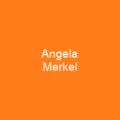Olaf Scholz: The Chancellor of Germany’s Journey
Who is Olaf Scholz and why does his name ring so familiar? Born on June 14, 1958, Scholz has been the Chancellor of Germany since 2021. His political career spans decades, from his early days as a lawyer to his current role leading one of Europe’s most influential nations.
The Early Days
Olaf Scholz started his journey in politics with the Jusos, the youth organization of the Social Democratic Party (SPD). From 1975 to 1989, he held various positions including Deputy Federal Chairman and Vice President of the International Union of Socialist Youth. His early career was marked by a critical stance towards NATO and capitalism, reflecting his evolving political views.
Political Ascendancy
In 1998, Scholz became a Member of the Bundestag, representing Hamburg. He served as Senator for the Interior from 2001 to 2002 and was General Secretary of the SPD from 2002 to 2004. His tenure saw him involved in debates over journalistic norms and serving on several inquiry committees.
Finance Minister and Vice Chancellor
In 2018, Scholz was appointed as both the Federal Minister of Finance and Vice Chancellor under Angela Merkel’s fourth cabinet. His role included implementing financial rescue packages during the COVID-19 pandemic, which helped prevent mass layoffs. He also oversaw the allocation of funding from the Next Generation EU fund and agreed on a global minimum corporate tax rate at the G7 summit.
Chancellorship Challenges
As Chancellor, Scholz faced numerous challenges. His handling of the CumEx tax fraud in late 2021 was widely criticized. He also led Germany’s response to the Russian invasion of Ukraine and Israel-Hamas war, navigating complex geopolitical landscapes.
Economic Policies
Under Scholz’s leadership, Germany prioritized reducing government debt and limiting public spending while proposing an EU-wide unemployment insurance system. He also drafted legislation for a share purchase tax on companies over €1 billion in market capitalization, facing criticism from journalists like Hermann-Josef Tenhagen.
Environmental and Climate Policy
Scholz negotiated the climate package and proposed an international climate club. He supported the expansion of renewable energy capacities and advocated for the end of combustion vehicle sales by 2035, aligning with the Green party’s goals.
International Relations
Internationally, Scholz has visited several countries, including Poland, Saudi Arabia, UAE, Qatar, and Russia. He emphasized Germany’s relationship with the United States, calling it ‘Europe’s closest and most important partner.’ His policies on NATO and military spending have been a focal point of his tenure.
Ukraine Crisis
The Russian invasion of Ukraine in 2022 highlighted Scholz’s commitment to supporting Ukraine. He increased Germany’s defense budget by €100 billion, established a 100 billion euro defense fund, and sent effective weapons to Ukraine, including 2,000 portable missile weapons.
Domestic Policies
At home, Scholz faced criticism for his handling of the Wirecard scandal. He also proposed a European subsidy program for electric vehicles in response to Volkswagen’s plan to close factories in Germany. His stance on compulsory vaccinations and immigration policies has been controversial.
The Collapse of the Government
On November 6, 2024, Chancellor Scholz removed Finance Minister Christian Lindner from his position due to a loss of trust, leading to the collapse of the governing coalition. The government faced challenges including a recession and housing crisis.
A New Chapter
On December 16, 2024, Scholz lost a vote of no confidence, paving the way for elections in February 2025. His tenure as Chancellor has been marked by significant policy shifts and complex international relations.

Olaf Scholz’s journey as Chancellor of Germany is a testament to his political acumen and adaptability. From his early days in the SPD to leading one of Europe’s most influential nations, Scholz has faced numerous challenges and made significant policy decisions that have shaped Germany’s future.
In conclusion, Olaf Scholz’s tenure as Chancellor has been marked by a blend of economic pragmatism, environmental commitment, and international diplomacy. His legacy will be remembered for his response to crises like the Russian invasion of Ukraine and his efforts to navigate Germany through complex geopolitical landscapes.
You want to know more about Olaf Scholz?
This page is based on the article Olaf Scholz published in Wikipedia (retrieved on December 16, 2024) and was automatically summarized using artificial intelligence.






